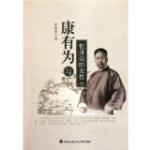|
This section contains 1,899 words (approx. 7 pages at 300 words per page) |

|
Encyclopedia of World Biography on K'ang Yu-wei
K'ang Yu-wei (1858-1927) was one of the most prominent scholars of modern China, particularly famous for his radical reinterpretations of Confucianism and for his role as the Emperor's adviser during the abortive Hundred Days Reform movement of 1898.
In the late 19th century the helplessness of China in the face of the imperialist powers was becoming increasingly difficult to ignore. Chinese literati, who in midcentury had been supremely confident of the superiority of China's traditional ways, were becoming aware in the 1880s and 1890s that their nation's political institutions and economic system must be reformed if China were to avoid becoming a colony of the Europeans.
K'ang Yu-wei was born near Canton to a scholarly and locally prominent family on March 19, 1858. Like his father and grandfather, K'ang prepared for a bureaucratic career by studying the Confucian classics in preparation for the civil service examinations. He passed the first series...
|
This section contains 1,899 words (approx. 7 pages at 300 words per page) |

|


